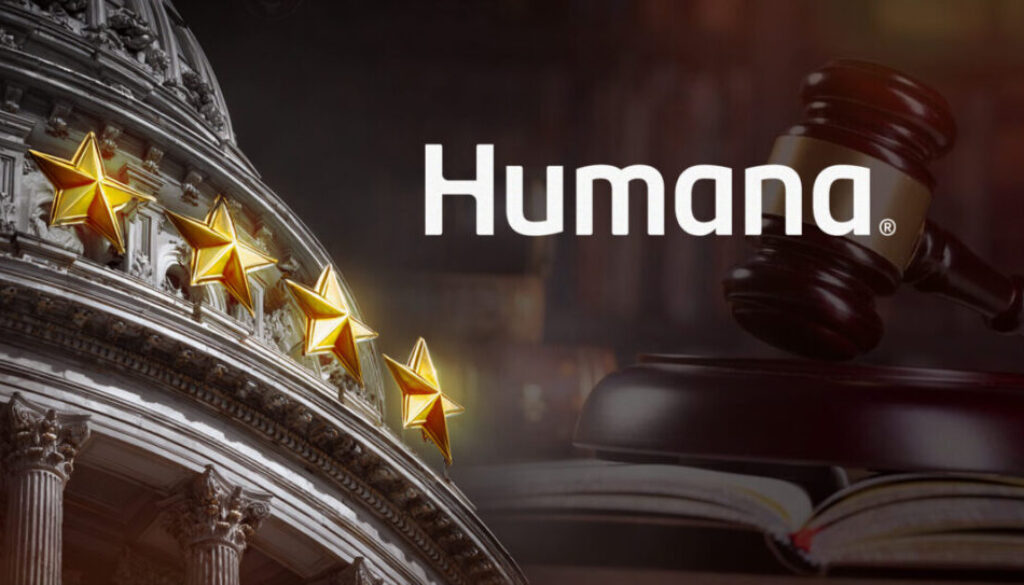Humana suit: 3 phone disconnects could cost insurer billions in revenue

The fate of three disconnected phone calls from the Centers for Medicare & Medicaid Services could cost Humana billions of dollars.
The phone calls are part of a CMS “star ratings” system that awards one to five stars based on a series of criteria. Insurers who offer Medicare Advantage plans are subject to the ratings system.
While the ratings are ostensibly a vehicle for consumers and providers to evaluate MA plans, CMS also awards bonus payments — in amounts that can reach hundreds of millions or even billions of dollars annually — to plans with better ratings.
Humana is asking a Texas court to set aside the insurer’s 2025 ratings and force the CMS to recalculate the rating without the three disconnected phone calls in dispute.
“The stakes hardly could be higher,” Humana attorneys wrote in the lawsuit. “Last year and for the first time, MA surpassed traditional Medicare measured by its share of the 60+ million Americans who depend on Medicare. It is now a half-trillion-dollar public benefit program.”
Humana asked the Northern District of Texas federal court to decide on its case prior to the start of the Medicare enrollment period Oct. 15. In a request for summary judgment filed Friday, government attorneys accused Humana of floating “red herring” arguments and reiterated that its rating downgrade is based on the insurer hanging up on callers who requested a translator.
CMS will release its 2026 star ratings next month. Capstone, a policy firm that covers health insurers, and Wells Fargo, have estimated Humana’s disappointing stars results could wipe out $3 billion in revenue for the company, the Financial Times reported.
The phone calls
The star ratings are designed to evaluate the performance of plans’ customer-service call centers in providing foreign-language interpreters to assist would-be enrollees calling for assistance. To assess these measures, CMS representatives make test calls to evaluate centers’ compliance with regulatory requirements.
Humana claims that CMS lowered its star ratings on “at least a dozen of Humana’s largest plans on the basis of just three phone calls that were handled by CMS in a manner inconsistent with the agency’s own regulations.”
Two of the calls in question disconnected due to third-party internet connection interruptions while Humana’s service representatives were connecting with an interpreter to join the call, the insurer said in its lawsuit. The third call disconnected after the CMS caller did not say anything, Humana said.
When customer service calls are dropped prematurely, Humana policy requires its representatives to immediately call back, the lawsuit noted. But CMS does not permit call backs, a point of contention in the lawsuit.
Humana claims it readily identified the CMS calls due to the phone number and the unique script CMS callers follow, the lawsuit said.
“Humana’s customer service representatives therefore generally know when they are speaking with a CMS test caller rather than a real-world caller,” the lawsuit said. “To comply with CMS guidance for “successful” handling of such calls, a representative speaking with a CMS test caller must deviate from Humana’s standard sales script and thus will refrain from requesting callback information.”
In its request for summary judgment, CMS cast doubt on Humana’s claims. The insurer had plenty of opportunities to prove that could identify CMS callers during the plan preview period or the agency appeal process, CMS said.
“Or Humana could have introduced evidence of its institutional awareness that the numbers used to place the test calls were associated with prior CMS test calls,” CMS attorneys wrote. “It could have offered an affidavit saying it knew at the time that the calls came from CMS.”
First lawsuit tossed
Humana’s initial lawsuit was tossed out by Judge Reed O’Connor in July. He ruled that Humana had not exhausted all administrative remedies before filing. After completing the appeals process, Humana refiled its complaint in the same court on July 21, 2025
Introduced by the Affordable Care Act, the CMS Star Ratings are meant to help consumers compare plan quality and drive incentives for health plans to improve care. Higher star ratings lead to bonuses, higher payments, and marketing advantages.
The CMS acknowledges that it is tightening up the criteria for the ratings.
Under the 2023 ratings, 21.87% of MA participants had been enrolled in five-star plans, the Humana lawsuit said. In the 2024 ratings, that number decreased to 7.64%, then to 1.79% in the current year.
Meanwhile, the number of enrollees in 3.5-star plans increased from 18.71% in 2023 to 27.71% in 2025.
“There are no broader, objective indications that MA plan quality has diminished over that time period,” the Humana lawsuit noted.
© Entire contents copyright 2025 by InsuranceNewsNet.com Inc. All rights reserved. No part of this article may be reprinted without the expressed written consent from InsuranceNewsNet.com.
The post Humana suit: 3 phone disconnects could cost insurer billions in revenue appeared first on Insurance News | InsuranceNewsNet.





